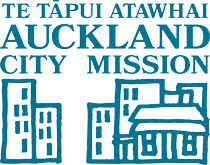Pay transparency

At Auckland City Mission – Te Tāpui Atawhai our gender pay gap is as follows:
Organisational Gender Pay Gap in % = -5.5%
Organisational Gender Pay Gap in $ = -$1.92
*The above figures were calculated in June 2022.
Gender Pay Gap is the difference between average gross hourly earnings of male and female employees as % of male gross earnings. A positive percentage indicates a gap where male team member median pay is higher than female team members. A negative indicates the median female pay is higher.
We want to acknowledge that that our negative pay gap is because we have a largely female workforce. Although it looks like a good news story, the reality is many female-dominated fields are not as highly paid as male-dominated fields. We will continue to advocate for fair pay for all.
We also acknowledge that ethnicity is an important consideration. We are working towards gathering employee ethnicity data in order that we can be equally transparent on our position at the intersection of ethnicity, gender, and pay.
Both these measures play an important part in the ongoing work to ensure our team members are paid fairly for their work, and that pay discrimination based on gender, ethnicity or ability does not exist.
Mind the Gap
In July 2022, Auckland City Mission – Te Tāpui Atawhai was proud to join a group of over forty New Zealand unions, charities and community groups to implore Government to change legislation to address New Zealand’s pay gap immediately and help reduce poverty.
In an open letter to Government in major New Zealand newspapers, addressed to then Prime Minister Jacinda Ardern, Minister for Workplace Relations Michael Wood and Minister for Women Jan Tinetti, the letter asked Government to make pay gap reporting mandatory for businesses with more than 55 employees.
The Mission team supports the open letter because every day they see people who do not have enough income to feed their family. Women who are sole parenting, and Māori and Pasifika, are over-represented amongst the people the Mission supports with food, often in low-paid jobs or insecure jobs.
Led by the MindTheGap campaign, the letter says with the soaring cost of living taking its toll on families across Aotearoa, made worse as winter’s heating bills also begin to bite on household income now more than ever, we must act to close our gender and ethnic pay gaps.
The report from the MindTheGap campaign analyses public pay gap reporting impacts in seven countries and shows mandatory reporting can reduce gender pay gaps by between 20-40 percent. Applied to a New Zealand context, it means a woman earning the current median wage in New Zealand ($26.37) could receive $12.80 – $35.77 a week more.
MindtheGap wants the Government to work with businesses to agree on a standardised approach to reporting and introduce pay gap reporting legislation with urgency. Mandatory reporting is already in place for the New Zealand public service.
“We know that women, and especially women raising children, women sole parenting, are disproportionately affected by the pay gap and are most at risk in terms of food insecurity. Unless we choose to intervene and change the status quo, we are condemning all those who are food insecure to being unwell at least half of their days and to suffer distress, for as long as the food insecurity lasts. For some, that is years.”
– Manutaki – Auckland City Missioner Helen Robinson
